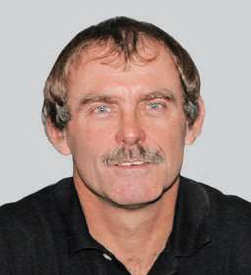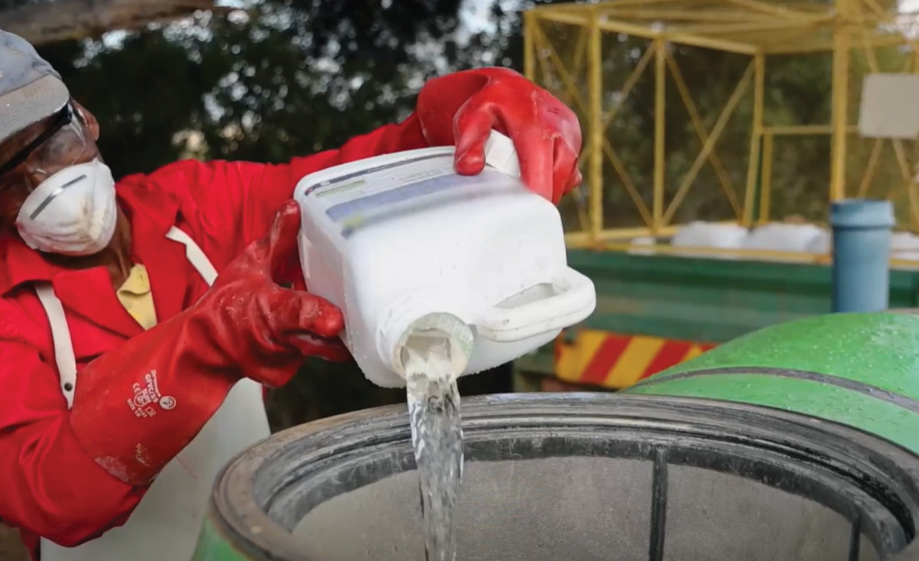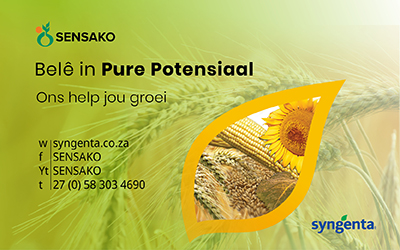
South Africa is no different to most other countries in the world when it comes to waste: we as citizens pollute the environment with solid and liquid waste to the point where the environmental authorities (Department of Forestry, Fisheries and Environment or DFFE) had to promulgate regulations to bring some order into society and reduce waste.
The DFFE went about their business in quite an ingenious way by placing the onus for waste management systems upon the producers of commodities. This is what is known as the extended producer responsibility (EPR) regulations which require that producers of commodities must devise mechanisms and infrastructure to allow end users of their products to dispose of the waste of such products in an environmentally responsible manner. A sectoral approach was taken by the DFFE. For example, in the case of pesticides a special notice was promulgated by the DFFE to place a ‘burden’ (read here more of a responsibility) on the pesticide industry to have ways and means of collection and disposing of empty pesticide packaging and redundant (obsolete) pesticides.
Extended producer responsibility scheme for the pesticide sector
The EPR scheme for the pesticide sector is one of many similar notices that have been developed by the DFFE with the aim of reducing, re-using or recycling waste. A similar set of regulations was promulgated for the electronics industry to reduce the quantity of electrical appliances being dumped at landfills in the country. Perhaps the biggest difference between the pesticide industry and other industries is that it has two waste streams, namely obsolete pesticides that are hazardous substances and empty pesticide packaging that may be hazardous depending on how the packaging is managed.
In the EPR scheme for the pesticide industry there is a direct instruction to any person or company who produces a pesticide or pesticides to register itself as such with DFFE’s South African Waste Information Centre and to establish a producer responsibility organisation (PRO) to manage empty pesticide packaging and obsolete pesticides at the post-consumer stage. In simple terms, the requirement of the DFFE for pesticide producers is to have an organisation that can assist end users of pesticides, such as producers, to dispose of empty packaging and obsolete pesticides.
The regulations allow for pesticide producers to operate singularly or collectively, which means that a pesticide producer must have a system and infrastructure through which end users can get rid of their pesticide packaging and obsolete pesticides or join an existing establishment (PRO) that has systems and infrastructure to perform the functions of pesticide waste management.

Where does the producer fit into the EPR regulations?
Producers, like the general consumer (in fact all of us), are waste generators. Much of the waste generated on a farm is general waste, and producers are compelled by law to dispose of waste in a responsible manner as dictated by the National Environmental Management: Waste Act (NEMWA). The trouble for the producer lies in pesticide waste because, as mentioned earlier, pesticide waste (packaging and obsolete pesticides) is hazardous or potentially hazardous. The NEMWA and SA National Standard 10206 prohibit the burning or burying of hazardous waste. This is not an unreasonable prohibition – any such action pollutes the environment and poses a severe risk to human health also. What options are then available to a producer to dispose of empty pesticide packaging and obsolete pesticides?
CropLife SA is currently registered as the only pesticide PRO (registration number: 19/7/5/P/PRO/20230428/038). It has a very large network of CropLife SA-certified recyclers that operate around the country to receive and recycle nominally empty pesticide packaging (mostly the HDPE drums). Here, the catch phrase ‘nominally empty’ is the key element of CropLife SA’s commitment and plea to producers: make sure that all pesticide packaging is cleaned according to the container management guidelines that are available on the CropLife SA website at https://croplife.co.za/Home/ContainerManagement.
Most producers already know about the triple-rinse principle – that is rinsing an empty container three times with clean water and decanting the rinse water into the spray tank, after which the container must be punctured to render it unsuitable for other uses. Such packaging is not hazardous and will be accepted by the CropLife SA-certified recyclers. The balance in the equation therefore lies between the producer and the CropLife SA PRO – one generates a clean, general waste product and the other takes it over and recycles it.
The CropLife SA PRO and its associated recyclers are funded by the pesticide producers who are subscribers of the CropLife SA PRO and who pay an annual subscription fee (also called a waste management fee). This fee is used to subsidise the recycling efforts with administrative support, equipment, consumables, infrastructure, and logistics to collect and recycle nominally empty pesticide packaging. Approximately half of the funds generated is used to dispose of obsolete pesticides. The costs of obsolete pesticide disposal are very high because these products have to be incinerated at a fee of more than R20 000/metric ton. A question that may arise from producers is how the regulations and the CropLife SA PRO benefit them? The costs of the disposal of empty pesticide packaging is not for the producer’s pocket, it is for the CropLife SA PRO’s account. In future, the PRO will also collect and dispose of obsolete pesticides which would have cost producers enormous amounts of money.
Key points for producers in terms of the epr regulations
- The EPR regulations place an onus on pesticide manufacturers to have a system and infrastructure in place to manage pesticide waste at the post-consumer stage, also known as end-of-lifecycle. However, it does not abscond waste generators of their duties to dispose of pesticide waste responsibly and according to the statutes of the country.
- Producers must insist that their crop advisers guide them on the appropriate cleaning of pesticide packaging and where the closest CropLife SA-certified recycler is situated.
- Producers must under no circumstances burn or bury empty pesticide containers and obsolete pesticides.
- Producers have a right to question whether a pesticide producer (manufacturer or supplier) is a subscriber of the CropLife SA PRO. If the supplier is not, the CropLife SA PRO is under no obligation to manage their packaging and obsolete pesticides at the end of their lifecycles.
- Producers have the right to request assistance from the CropLife SA PRO in terms of hurdles experienced with empty packaging and obsolete pesticides.
Advantages for society and the environment
Producers may not realise it, but the pesticide containers from the agricultural sector supply career opportunities for hundreds of people. The recyclers are not the only ones benefitting; it is also their workers and people in companies who manufacture other goods from the recycled plastic. CropLife SA’s motto for the recycling effort – “It’s the right thing to do” – carries more weight than simply a few words. It carries a message of clean farms, job opportunities and adherence to the waste management regulations of South Africa. South Africa is one of only two countries in the world that manufactures new pesticide containers from recycled container materials.
We are furthermore under the top five countries in the world with success of recovery and recycling of empty pesticide containers. Is it not time for all producers to take us to be the world leader with recovery and recycling of empty containers? We can do it, down here in the southernmost country in Africa. It is the right thing to do!
Producers are invited to contact the CropLife SA stewardship and operation manager, Dr Gerhard Verdoorn, on 082 446 8946 or at gerhard@croplife.co.za.





























